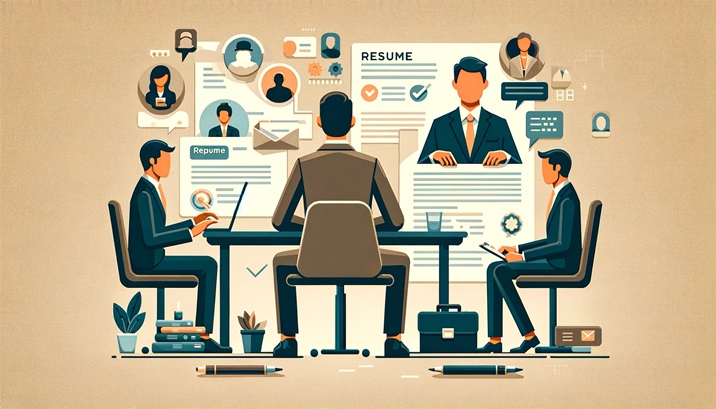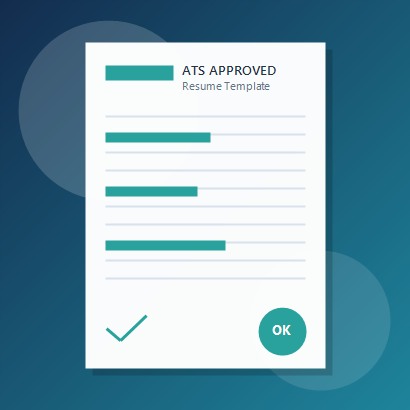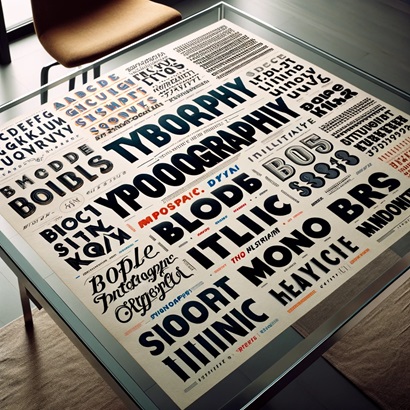Leveraging Your Resume to Get More Interviews
Resume Optimizer Pro Editorial Team
Updated September 25, 2024

A resume is more than just a list of your past jobs and education; it's a crucial tool designed to open doors and create opportunities. Its primary function is not merely to secure a job, but to get you in front of the right people: those who make hiring decisions. If you have a poorly written or formatted resume, it may not get past ATS screening bots that determine whether you will be presented to a recruiter as a potential candidate for the position or not. This article will explore effective strategies to enhance your resume, ensuring it not only catches the eye of recruiters but also paves the way for crucial interviews where you can truly showcase your talents.
Crafting a Targeted Resume
The first step in making your resume a doorway to more interviews is tailoring it to each specific job application. Generic resumes are easy to spot and often quickly discarded. By customizing your resume for each position, you emphasize the skills and experiences that are most relevant to the job description. This involves mirroring the language found in the job posting, highlighting key achievements that directly align with the job requirements, and organizing your resume to showcase the most pertinent information first.
Many candidates make the mistake of simply listing job duties under their experience section. To stand out, transform your resume into a compelling narrative of your professional journey by focusing on achievements. Use action verbs to describe how you contributed to your previous organizations, quantify your successes with data and statistics, and demonstrate the impact of your work. This approach not only provides tangible proof of your capabilities but also draws attention to your potential value to prospective employers.

Optimizing Resume Design and Format
Recruiters often skim through resumes very quickly; therefore, the layout and design of your resume should facilitate easy reading. Use clean lines, adequate spacing, and legible fonts to make important information stand out. Bullet points can help break up text and draw attention to key points. A well-designed resume reflects your professionalism and attention to detail, qualities that are attractive in any candidate.
Many companies use Applicant Tracking Systems (ATS) to help manage the influx of resumes. These systems scan resumes for specific keywords and phrases that relate to the job postings. To ensure your resume passes through these systems, use standard headings (like "Work Experience" and "Education"), avoid tables and other complex formatting, and include keywords from the job description. An ATS-optimized resume increases your chances of getting it in front of a human reviewer, who can invite you for an interview.
Building a Strong Personal Brand
Your resume should be part of a cohesive personal brand that includes your LinkedIn profile and other professional or public social media accounts. Ensure the information across these platforms is consistent and up-to-date. This consistency reinforces your professional image and helps build trust with potential employers. It also offers more depth to your professional persona, providing multiple avenues for recruiters to engage with your content.
While technical skills and experience are crucial, soft skills and personality traits are equally important. Employers look for candidates who can fit into their company culture and communicate effectively with teams. Highlight traits like leadership, communication, and problem-solving skills. Include brief examples that show how you've used these skills in professional settings. This holistic approach helps recruiters see you as a well-rounded candidate.
Effective Follow-Up Strategies
After submitting your resume, a polite and strategic follow-up can reinforce your interest in the position and keep your name on the recruiter's mind. Wait for a week or two, then send a brief email reiterating your enthusiasm for the role and asking if they need any more information from you. This can prompt the recruiter to review your application more closely and potentially schedule an interview.
While following up is important, it’s crucial to do so respectfully. Limit your follow-ups to avoid coming across as pushy or desperate. Each interaction should reflect your professionalism and patience, qualities that are highly valued in any field.
Conclusion
Your resume is your first step towards securing that all-important interview, where you can then sell yourself effectively through your communication and interpersonal skills. At Resume Optimizer Pro, we specialize in crafting resumes that not only pass ATS screenings but also draw the attention of recruiters, getting you through that critical front door. Once you're in the interview room, it's your opportunity to shine and secure the position. With our expertise, your resume will be your strongest advocate, compelling employers to see the value you can bring to their organization.
Final Thoughts
In a competitive job market, having a resume that effectively communicates your value is more crucial than ever. By employing these strategies, you enhance not just the quantity of your interviews but the quality of each opportunity. Let your resume open doors and set the stage for successful interviews where you can truly demonstrate why you are the best candidate for the job.


